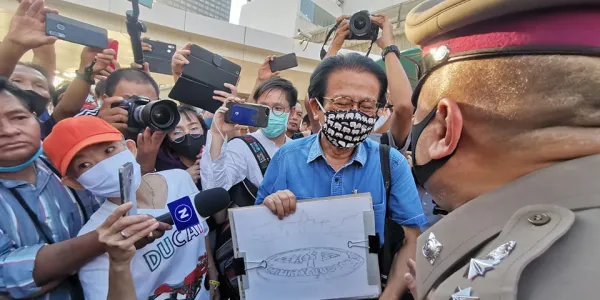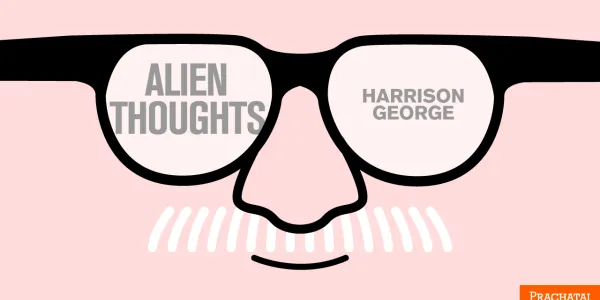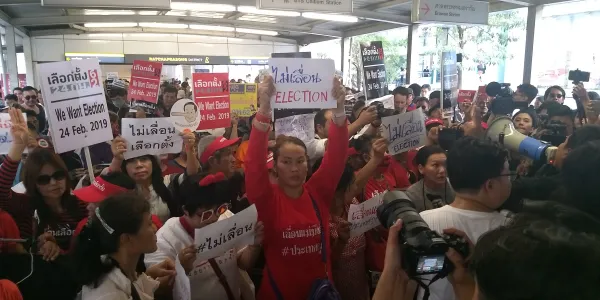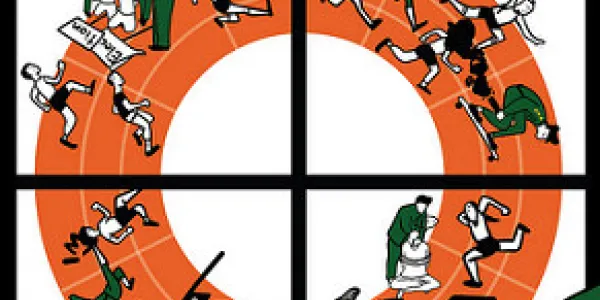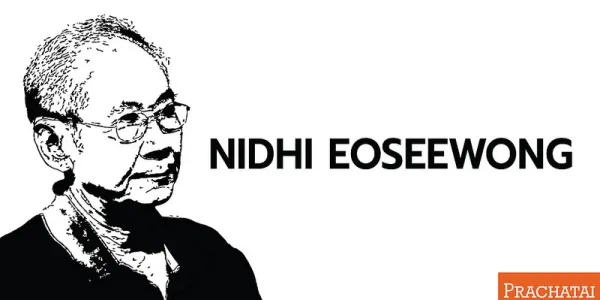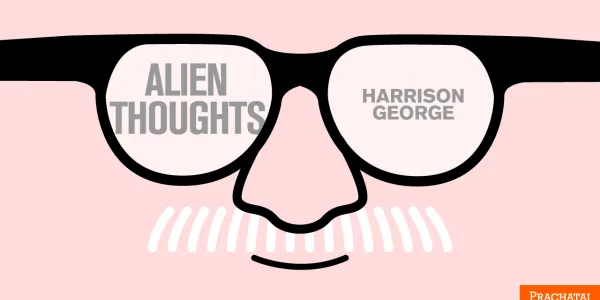By Yiamyut Sutthichaya |
<p>The 24 June 1932 democratic revolution has gained wide public attention on its 88th anniversary. State reaction to the people’s movement celebrating the revolution is based on suspicion and threats, while the military glorify the rebels who tried by force to reinstate the monarchy.</p>
By Nidhi Eoseewong |
<div>As someone who voted for Pheu Thai before, and could possibly vote for them again, I would like to respectfully inform the party of this message:</div>
<h2>Will the party be a part of the battle for democracy?</h2>
<div> </div>
<div>If the party thinks that this is the most important role for them right now, I would like it to be understood that the current political objective is not to win the election. If we’re under a constitution that deprives an elected administration body of power like this, why should we win the election?
</div>
By Harrison George |
<p><em>News item:</em></p>
<p>National Security Council (NSC) secretary-general Wallop Raksanoh has “pledged to go after those who are financially supporting pro-election activists”. General Wallop pledged to “hunt down those who are the backers of the group,” saying that the “activists would not pose such a major problem if people were not egging them on.”</p>
<p><em>The scene: A meeting room at the National Security Council, where the Egging On Investigation Team is reporting its findings.</em></p>
<p>So, have you interrogated all the suspects?</p>
<p>Yes, sir. 59 of them.</p>
<p>As Thais celebrate Songkran Festival, one of the few remaining landmarks commemorating the 1932 democratic revolution has been quietly removed.</p>
<p>On 14 April 2017, the brass plaque commemorating<a href="https://prachatai.org/english/category/1932-revolution"> the 1932 Revolution</a> at the Royal Plaza in Bangkok disappeared.</p>
By Veerayooth Kanchoochat |
<div><img alt="" src="https://62e528761d0685343e1c-f3d1b99a743ffa4142d9d7f1978d9686.ssl.cf2.rackcdn.com/files/142881/width926/image-20161024-28409-114n5bi.jpg" /></div>
<div> </div>
<div><span>Under military rule, social order is attained at the expense of economic growth while elected governments usually lead to political turmoil.
</span></div>
By openDemocracy |
<p>A message from Thai youth to the <a href="http://www.coe.int/en/web/world-forum-democracy/about2016wfd">World Forum for Democracy 2016</a> on ‘Democracy and equality – does education matter?’. Yes it does.</p>
By Harrison George |
<p>Ah, Ebbw Vale! That evocative name that conjures up the once biggest steelworks in Europe, the socialist ghosts of Aneurin Bevan and Michael Foot, and the gross affront to common sense that is Welsh spelling.</p>
<p>Then the steel industry collapsed and the coal mines were savaged by Thatcher’s anti-unionism. By the beginning of this century Ebbw Vale’s people suffered chronic unemployment and its land suffered the toxic legacy of its industrial heyday.</p>
By Harrison George |
<p>The future of Wat Ratha Dharma Nun has been cast into further question by the discovery of yet more grisly evidence of corpses of democracy and apparent links to the shadowy world of international dictatorship trafficking.</p>
By Pavin Chachavalpongpun |
<p><strong>My speech at a hearing on </strong><strong>“</strong><strong>Obstacles to Democratisation in Thailand</strong><strong>” </strong><strong>at the French Senate, Paris, 5 April 2016</strong><strong>.</strong></p>
<p>I would like to focus mainly on current politics of Thailand, particularly on obstacles to Thai democratisation in the aftermath of the 2014 coup.</p>
<p> </p>
<p><img alt="" src="https://c2.staticflickr.com/2/1717/26335873516_670095a5c9.jpg" /></p>

